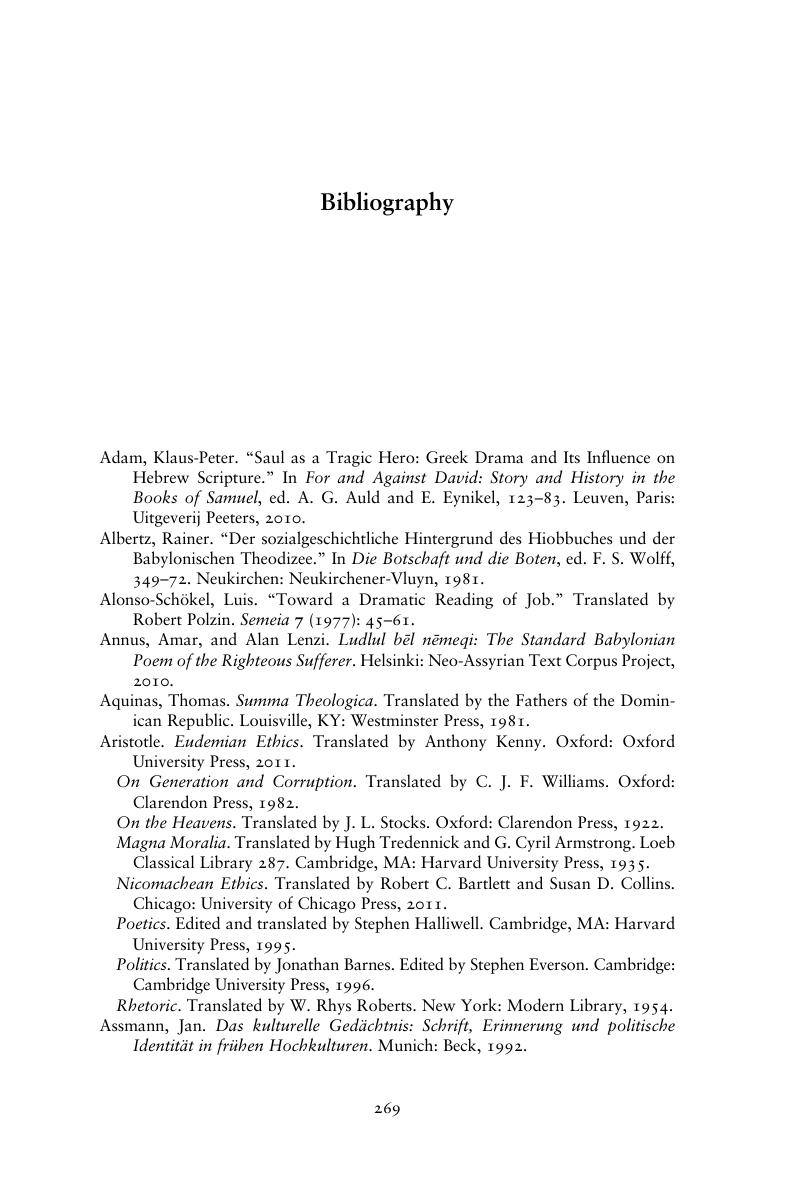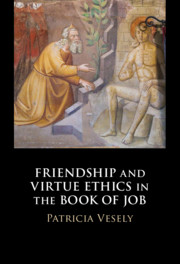Book contents
- Friendship and Virtue Ethics in the Book of Job
- Friendship and Virtue Ethics in the Book of Job
- Copyright page
- Contents
- Acknowledgments
- Introduction
- 1 Introduction to Virtue Ethics
- 2 Friendship in Aristotle and the Wider Hellenistic World
- 3 The Ethics of Reading
- 4 Friendship in the Poetic Dialogue
- 5 Contrasting Moral Visions
- 6 Virtue and the Good Life
- 7 Tragic Literature and the Cultivation of Character
- Conclusion
- Bibliography
- General Index
- Source Index
- References
Bibliography
Published online by Cambridge University Press: 11 March 2019
- Friendship and Virtue Ethics in the Book of Job
- Friendship and Virtue Ethics in the Book of Job
- Copyright page
- Contents
- Acknowledgments
- Introduction
- 1 Introduction to Virtue Ethics
- 2 Friendship in Aristotle and the Wider Hellenistic World
- 3 The Ethics of Reading
- 4 Friendship in the Poetic Dialogue
- 5 Contrasting Moral Visions
- 6 Virtue and the Good Life
- 7 Tragic Literature and the Cultivation of Character
- Conclusion
- Bibliography
- General Index
- Source Index
- References
Summary

- Type
- Chapter
- Information
- Friendship and Virtue Ethics in the Book of Job , pp. 269 - 280Publisher: Cambridge University PressPrint publication year: 2019



